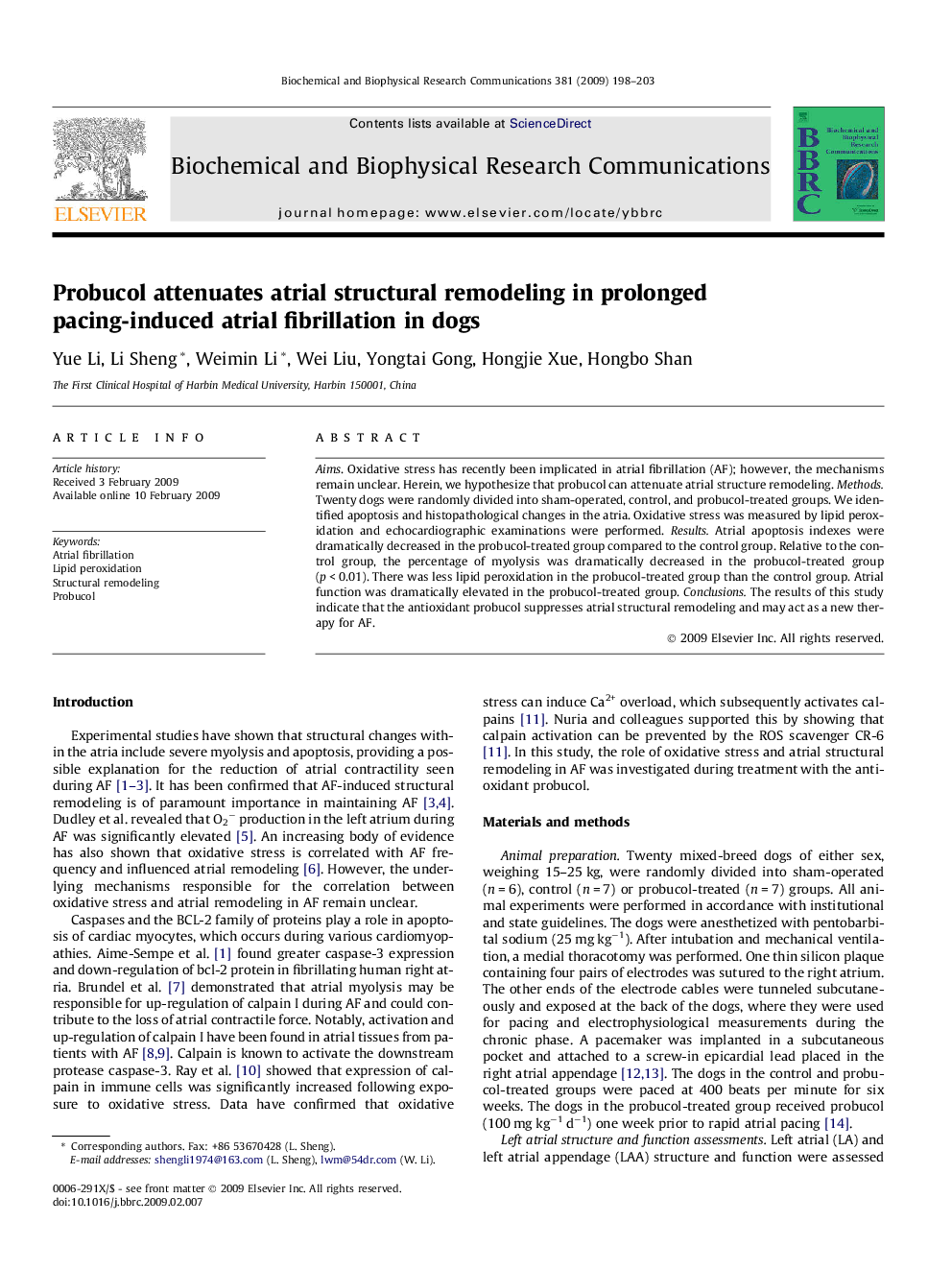| Article ID | Journal | Published Year | Pages | File Type |
|---|---|---|---|---|
| 1934350 | Biochemical and Biophysical Research Communications | 2009 | 6 Pages |
Aims. Oxidative stress has recently been implicated in atrial fibrillation (AF); however, the mechanisms remain unclear. Herein, we hypothesize that probucol can attenuate atrial structure remodeling. Methods. Twenty dogs were randomly divided into sham-operated, control, and probucol-treated groups. We identified apoptosis and histopathological changes in the atria. Oxidative stress was measured by lipid peroxidation and echocardiographic examinations were performed. Results. Atrial apoptosis indexes were dramatically decreased in the probucol-treated group compared to the control group. Relative to the control group, the percentage of myolysis was dramatically decreased in the probucol-treated group (p < 0.01). There was less lipid peroxidation in the probucol-treated group than the control group. Atrial function was dramatically elevated in the probucol-treated group. Conclusions. The results of this study indicate that the antioxidant probucol suppresses atrial structural remodeling and may act as a new therapy for AF.
